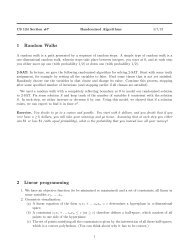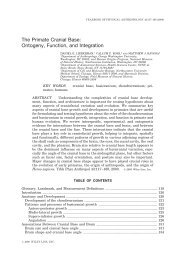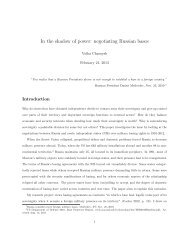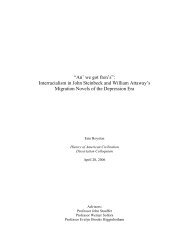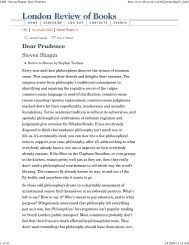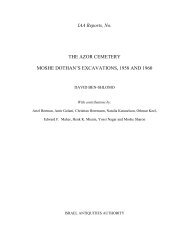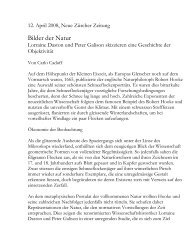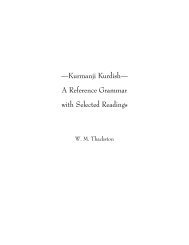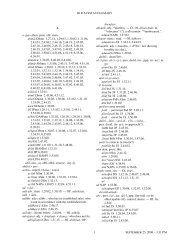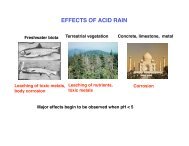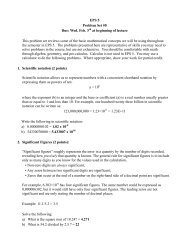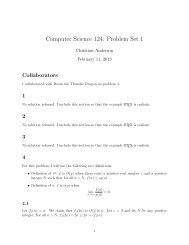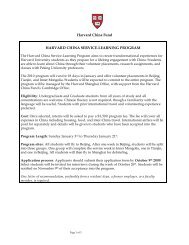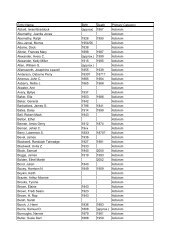—Kurmanji Kurdish— A Reference Grammar with Selected Readings
—Kurmanji Kurdish— A Reference Grammar with Selected Readings
—Kurmanji Kurdish— A Reference Grammar with Selected Readings
Create successful ePaper yourself
Turn your PDF publications into a flip-book with our unique Google optimized e-Paper software.
present, as in the following:<br />
Kaset û cd derket li hemû mûzîk<br />
marketan.<br />
Konferansa Tevgera Jinên Azad bi<br />
dawî bû.<br />
Li başûrê Kurdistanê di 10 salên dawî<br />
de 2733 kes mirin, 4913 kes jî<br />
birîndar bûn.<br />
The cassette and CD have come to (are<br />
available in) all music stores.<br />
The conference of the Liberated<br />
Women’s Movement has ended.<br />
2,733 people have died and 4,913 people<br />
have been wounded over the last ten<br />
years in the south of Kurdistan.<br />
A distinction between the two meanings of the verb bûn, ‘to be’ and ‘to<br />
become,’ is shown in the past tense by the placement of the verb. When it<br />
means ‘to be’ it follows the predicate, but when it means ‘to become’ the<br />
verb comes between the subject and the predicate, as in the following:<br />
Ew zabitekî jîr û jêhatî bû. He was a talented and worthy officer.<br />
Ew bû zabitekî jîr û jêhatî. He became a talented and worthy officer.<br />
§ 18.1. The Past Habitual/Progressive (Intransitive). The past habitual (‘I<br />
used to go’) and progressive (‘I was going’) is formed by adding the habitual/progressive<br />
prefix dí- to the simple past.<br />
ez díhatim em díhatin ez díçûm em díçûn<br />
tu díhatî hun díhatin tu díçûyî hun díçûn<br />
ew díhat ew díhatin ew díçû ew díçûn<br />
Gava diçûm dibistanê û vedigeriyam,<br />
dêlikek teva du cewrên xwe li ser riya<br />
min xuya dibûn û bi min da direyan.<br />
Leşkerên tirk wek pelkên daran di ser<br />
pişta hespan de dihatin xarê.<br />
THE VERB<br />
When I was going to school and coming<br />
back, a dog and her two pups used to<br />
appear in front of me and bark at me.<br />
Turkish soldiers were coming down<br />
from the backs of horses like leaves of<br />
trees.<br />
For past habituals in di-, the negative is regularly formed by prefixing néto<br />
the affirmative (and not, as in the present tense, by combining the negative<br />
prefix <strong>with</strong> di-):<br />
47



